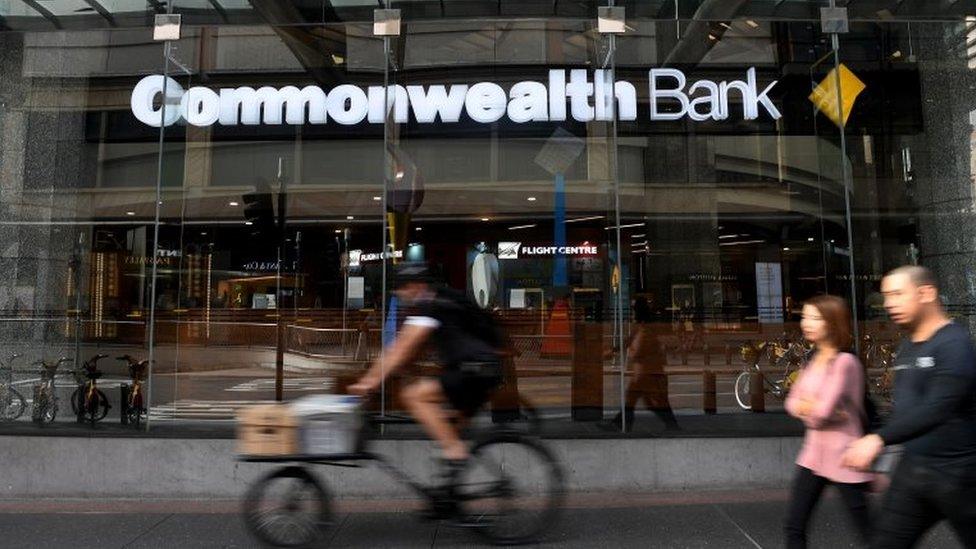Commonwealth Bank offers to pay record fine in laundering case
- Published

Australia's Commonwealth Bank has faced a series of scandals
Australia's Commonwealth Bank has said it will pay a $700m (£400m; $530m) fine for breaching anti-money laundering and counter-terror financing laws.
The scandal relates to 53,000 suspect transactions that the bank did not immediately report to authorities.
Last year, Australia's financial intelligence agency accused the lender of "serious and systemic" law breaches.
If a court approves the fine, it will be the largest civil penalty in Australian corporate history.
The bank, Australia's largest lender, said it would also cover A$2.5m in legal fees accrued by investigators.
"While not deliberate, we fully appreciate the seriousness of the mistakes we made," chief executive Matt Comyn said on Monday.
Australia's scandal-plagued financial sector is at the centre of a national inquiry into misconduct.
Undeclared deposits
Commonwealth Bank and intelligence agency Australian Transaction Reports and Analysis Centre (Austrac) agreed to the fine following court-ordered mediation.
Most of the breaches related to the bank's deposit machines, which could accept up to A$20,000 in cash at a time, anonymously if the person depositing was not a Commonwealth customer.
The bank failed to meet deadlines for reporting transactions over the legal threshold of A$10,000, according to Austrac.
Commonwealth Bank said the breaches were due to a coding error, which meant the machines failed to automatically report the transactions.
On Monday, Austrac said the settlement agreement showed that such breaches would not be tolerated.
"This [corporate behaviour] has real impacts on the everyday lives of Australians and puts the community at risk by increasing opportunities for terrorists to support attacks here and overseas, and enabling organised crime groups to peddle drugs to our families and friends," said chief executive Nicole Rose.
Both parties will now return to the Federal Court of Australia to seek formal approval.
Scandal-hit sector
Australia's banking and financial services sector has been rocked by a series of scandals over the last decade.
In December, Prime Minister Malcolm Turnbull established a royal commission inquiry to investigate the scale of wrongdoing.
Among allegations to hit Commonwealth Bank, the inquiry heard that the lender had collected fees from customers it knew had died.
In May, the bank also admitted to losing the bank records of almost 20 million people.
The lender has also been investigated over whether it adequately informed shareholders about all potential liabilities related to the anti-money laundering case.
Former chief executive Ian Narev brought forward his retirement last year as the bank faced pressure over the scandal.
- Published12 February 2018
